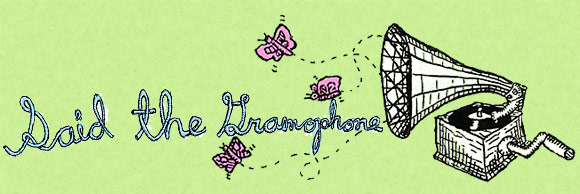Robert Pete Williams - "Prisoner's Talking Blues"
Game theorists, listen up! The prisoner's dilemma is not as you have it, but is, at least as described by Robert Pete Williams (a higher being than any of you), Hamlet's own. Williams wonders if he's better off alive or dead. Alive, he is sick, he is imprisoned, he is a burden to those of his family who still live, and is separated from those who are dead. Yet, being alive allows him to visit with his little kids, with his sister who is like a mother to him, and whom he loves. His parents are dead, and though he misses them, he feels they might be better off ignorant of his misdeeds and of his consequently unfortunate circumstances. If being human means, as some have suggested, that we are what we choose, then our personal potential is restricted by limitations on our physical freedom, and so Robert Pete Williams considers regaining his humanity by relinquishing it.
Williams talks and talks and talks. He talks so long, examines his predicament so thoroughly, that though he never states it explicitly, it becomes clear that his question is whether to be or not to be. He divides up his many words with serious, thoughtful breaths, meant to hold back the emotion from his consideration. He picks here and there at his guitar, playing something recognizable as blues, something lost underneath his words. He talks until you forget that he could communicate in any other way.
And then, more than three minutes into his song, he starts to sing. He sings of thoughts of suicide. It's barely different from his talking. And though he's merely making explicit what we already knew, his singing - so restrained, so gentle, so heavy that it sinks to the deep core of his trouble - reveals something new: his fear. He doesn't know what to do, he doesn't want to die, he wants to change, change while he's young, so that he may become old.
His guitar locks into an astonishing riff. As subtle as his singing, it has an equally devastating effect. Slow and circular, it anticipates the dry, eerie style of Malian blues guitarist Ali Farka Toure. Whereas Williams' singing communicates fear, the light drive of his guitar is a burgeoning resolve, an answer to his own cry for help. [Buy]
***
Washington Phillips - "Paul and Silas in Jail"
It is not known what instrument Washington Phillips used to make the otherworldly carnival sound that serves as a backdrop for his lullaby sermons. That's between Washington Phillips and god. [Buy]
Posted by Jordan at October 12, 2006 7:49 AMhaha, never did i expect to read an mp3 blog entry that had anything to do with game theory, thank you sir, for making my day
Posted by Liam at October 12, 2006 6:25 PMFor all I wax philosophic in my spare time I have never got around to game theory... but this may inspire me. You have a natural gift for elevating the narrative in aesthetic worship and I applaud you. I just found this site a couple days ago and the commentaries and the music selections feel ripped from my subconscious, to enjoy this site is effortless.
Posted by mike rot at October 14, 2006 2:32 PMI believe, the instrument you're hear in the back ground may be an autoharp, but as I listen more closely, perhaps not. It might be a hammered dulcimer.
Posted by MessengerBoy at October 17, 2006 12:09 AMMessenger Boy - Both good guesses, but I don't think either one is right. To me the sound seems too intricate to be an autoharp and not quite percussive enough to be a hammered dulcimer. From what I've read, it's either a dolceola (zither-like keyboard instrument) or some other homemade zither variation. Either way, you're pretty close with the dulcimer guess.
Posted by Jordan at October 17, 2006 1:06 AM



